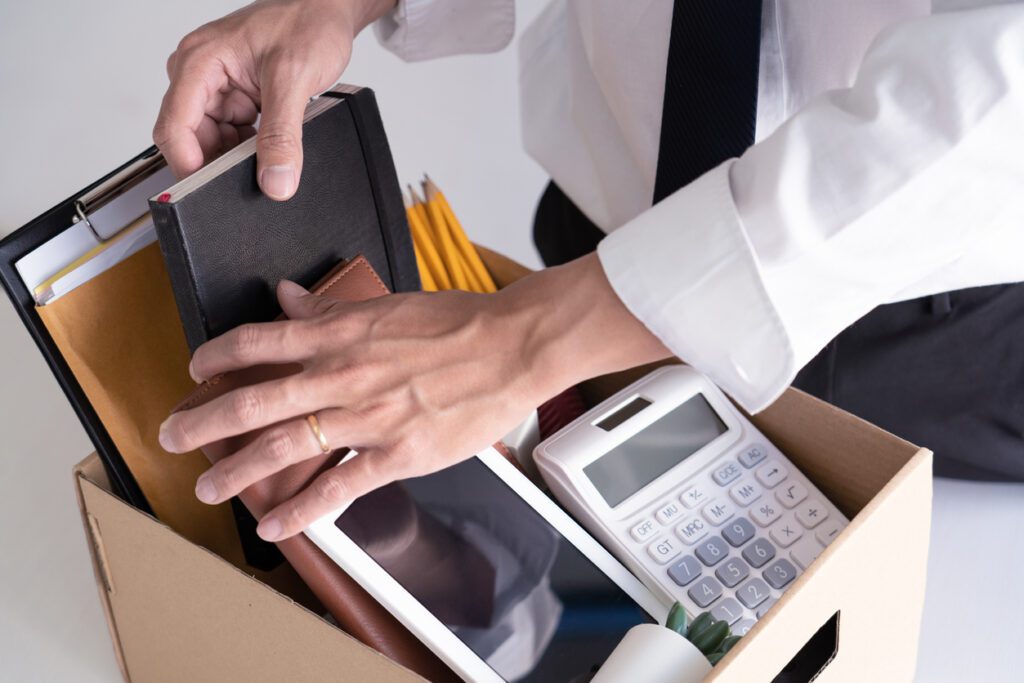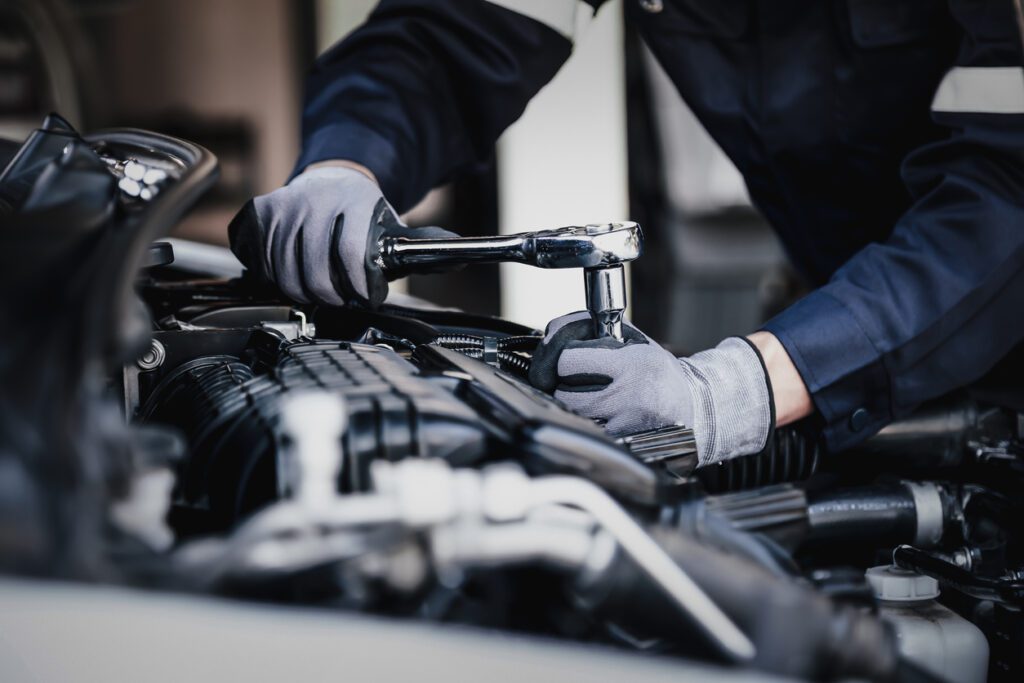Did you have an unexpected expense that just ruined your day? Do you want to learn how an emergency fund can help you make money? If so, I have listed five examples of unexpected expenses below with solutions (including building an emergency fund) to help make life a little easier.
Five examples of unexpected expenses:
- Job loss
- Home repairs
- Auto repairs
- Medical expenses
- Pet expenses
#1 Job loss

Did you lose your job due to an economic downturn? A company needing to reduce its payroll expenses, or dismissing an employee “at will” can be caused by a disruption in your life and your expenses.
According to the US Bureau of Labor Statistics, roughly 16.3 million people lost their jobs due to the combined housing crash, recession, and pandemic. History shows that a recession is likely to occur approximately every ten years. Therefore, this may impact you personally somewhere in your lifetime, emphasizing the importance of saving now and being prepared.
Companies evaluate their expenses daily, weekly, and monthly towards their budget. If a company notices they are overspending in payroll expenses, they will start cutting back employee hours. However, if a company is struggling financially, this could cause layoffs.
“At-will” employment implies that an employer can terminate an employee for any legal reason, and without prior notice. Unless you are a contracted employee, you could lose your job for no reason. Getting laid off could be due to a company re-evaluating its position or needing to spend more money on marketing to be profitable. Thankfully, if this is an unexpected layoff due to no fault of your own, you can collect unemployment benefits if you paid into them. Depending on the state you live in, unemployment will pay you a percentage of your wages based on your average wage over the last four quarters worked. Unfortunately, no job is guaranteed for life, and having a 3 to 6-month emergency fund will help you have peace of mind.
#2 Home repairs

Owning a home can have its benefits and rewards. However, when an unexpected expense pops up, like the HVAC going out, appliances breaking down, a faulty roof that needs repair, or a home flood, can cause those rewards to look less beneficial. When the HVAC goes out in hot summers or snowy winters, the last thing on your mind should be, how will I pay for this? The average for a new HVAC is $7500, and repairs can be just as costly.
Utilizing a credit card with a high variable rate for unforeseen expenses will ultimately increase costs over time. For example, paying $7500 with a credit card at a 20% variable rate adds $125 to your expense. Unless you pay off the credit card by the monthly due date, you now have a balance due of $7625 for a faulty HVAC, whereas if you have an emergency fund, you could have saved $125 toward something else.
A leaky roof is usually not noticed until rainfall, and when the rain doesn’t stop and your roof collapses, well, you have a new sunroof. All jokes aside, a new roof could cost upwards of $10,000, not including labor costs to fix the damage. Having an emergency fund, in this case, is essential.
I remember when my home suddenly had water coming through the carpet. I thought, was there a spill? The next day, the so-called spill came through my ceiling and flooded one of the bedrooms. I had no idea where the water was coming from but quickly had damage control come out and fix the problem. I discovered that the piping from the ice machine in the refrigerator was faulty and causing the leak. Thankfully, I had home insurance, which covered most of the $10,000 in damages.
Going without a dishwasher or a stove for a month or two is feasible. However, when an appliance like a washer or dryer breaks down, this is more of a need. Unfortunately, this has happened to me a couple of times. The average cost for a washer or dryer is around $1000 each, not including delivery costs. A less costly option is to purchase used appliances or go to a laundry mat while saving for new ones.
When becoming a homeowner, things break at the most unexpected time. A good rule of thumb is to set aside 1% of your home’s purchase price in savings each year. Home insurance and an emergency fund can help you prepare for unexpected expenses.
#3 Auto repairs

Having a car is a privilege and a means to get from point A to point B. However, when an unexpected expense happens from an auto accident, flat tire, battery failure, or when the check engine light comes on, one can only pray that the price to fix it won’t be too costly.
You’re on your way to work, and bam, you’re in an auto accident! Now, you must deal with repairs, health costs, if any, and your auto insurance. Thankfully, having auto insurance will cover most of the costs. However, what about the deducible? Another unexpected cost, another hit to your bank account.
An unexpected expense like your car battery not starting or getting a flat tire can be a cheap fix, especially if you have AAA. However, what if a more expensive cost comes into play, like your check engine light coming on? Now what? Average auto expense costs can reach up to $2600 each year. Putting money aside each month for emergencies can relieve some of the stress of paying for these costly repairs.
#4 Medical expenses (kids and family)

Medical expenses are not usually budgeted. So, when an unexpected expense occurs like having to get braces for your child or your child breaking their arm, it could be cause for concern. Moreover, figuring out how to pay those costs can be a struggle without savings. Larger unexpected medical expenses that affect your health long-term will require additional resources and savings to help cover costs.
Imagine, you get a call from your child’s school and find out they were playing on the monkey bars and broke their arm. Sound familiar? Not only do they need to be rushed to the ER, but they will also need to have physical therapy once their arm is out of the cast. That’s when the medical bills and out-of-pocket expenses start adding up. The ER bill is $150; pain medicine is $25; physical therapy is $40 per each visit, Cha-ching. So the question I ask you, is why not prepare ahead of time by putting money aside for the unexpected?
Many of us hate going to the dentist, and when we go, having additional costs like cavities and a root canal can be a pain, literally. However, braces can be the most expensive item, averaging between $3,000 and $7,000.
COVID has caused many people to go into the emergency room and have extended hospitalization. Long COVID has been known to last months and sometimes years. Long COVID may affect multiple organ systems, including respiratory, cardiovascular, gastrointestinal, mental health, and exercise intolerance. Having primary and secondary insurance covers only so much. Never-ending medical bills can put you in severe debt if you don’t have savings. If you have a large medical expense like this, please work with your hospital or clinic, as some of those costs can be waived or reduced.
Life is expensive, and unexpected medical expenses and health concerns are hard. A health savings account (HSA) allows you to allocate funds pre-tax for qualified medical expenses. Taking it one day at a time and expecting the unexpected by preparing ahead of time can keep you out of debt.
#5 Pet Emergency

Pets are part of the family! When they need medical care due to an emergency or an unexpected expense, you want to do everything you can to help them. They are voiceless, so trying to figure out what’s wrong could be costly.
Pets are curious creatures and sometimes they get into things they shouldn’t have, like prescriptive medicine, toxic chemicals, or even rat poisoning. This is one example of a pet emergency where urgent care would have to treat the animal immediately for induced vomiting.
Thankfully your pet is now ok, but if you can’t pay the bill or make payment arrangements, your pet can’t leave urgent care either. A vet hospital could host your animal until you pay for the costs!
Breeds such as the Labrador Retriever, Golden Retriever, Australian Shepherd, and German Shepherd commonly experience hip dysplasia. A bad hip can cause unnecessary pain for your pet when all they want to do is play. Unfortunately, hip replacement surgery tends to be one of the most expensive surgeries, costing around $3500 to $7500 per hip. If caught early enough, having pet insurance could help pay some of the costs. Another option is setting up an automatic payment plan with your veterinary clinic if you don’t have the savings to cover it.
Pets need their teeth cleaned, too! However, an unexpected expense like a root canal can cost up to $2500, which doesn’t even include cleaning your pets’ teeth. Looking into pet insurance is key when owning a pet. Pet insurance can cover a percentage of accidents, illnesses, chronic conditions, or behavioral issues. Your emergency fund should cover the remaining amount.
A little amount of savings goes a long way. You can start by building your savings slowly and setting aside 5% of your paycheck in a high-yield savings account. For example, if you put aside $100 monthly, you would have $1200 saved for any unexpected expenses that come your way.
Unexpected expenses can cause stress and anxiety, and not having savings or knowing how you will pay for an emergency could make the situation worse. Putting an unexpected expense on your credit card with a high variable rate means you will be paying more for that unexpected expense over time. A good rule of thumb is to have 3 – 6 months of savings for emergencies like a job loss, housing repairs, car repairs, medical expenses, or pet expenses. Furthermore, having a home, car, or pet insurance can assist in covering certain unforeseen expenses. Starting small by saving 5% of your paycheck is better than not starting at all, and setting up a high-yield savings account can help you earn interest on your money.


